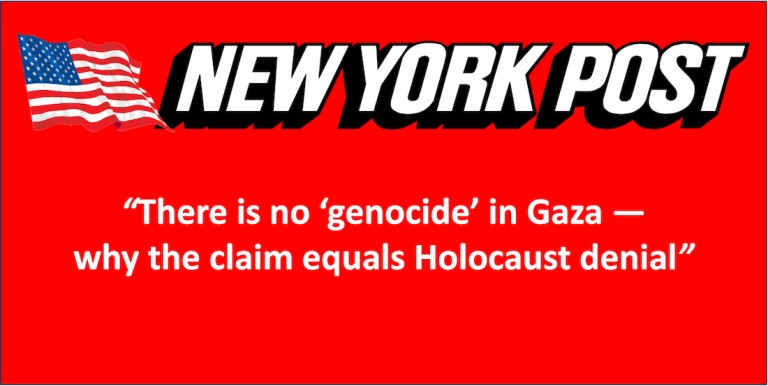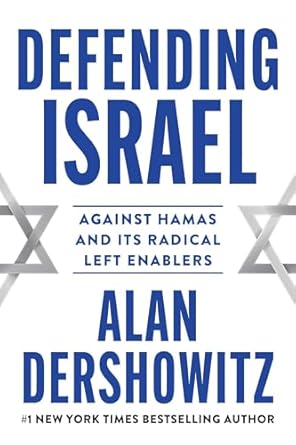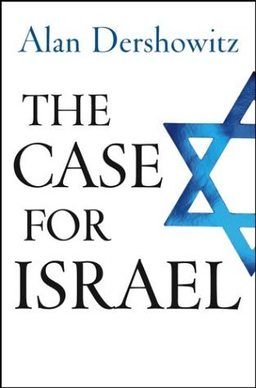
By the Staff of The Stewardship Report: Let the truth-telling begin
New York, N.Y. – The New York Post‘s recent editorial by attorney Alan Dershowitz equating genocide allegations regarding Gaza with Holocaust denial represents a dangerous manipulation of historical memory and legal scholarship.
Rather than protecting the sanctity of Holocaust remembrance, this argument weaponizes Jewish suffering to silence legitimate human rights concerns, ultimately dishonoring both the victims of the Holocaust and the principles of justice they died defending.

The Legal Definition of Genocide Stands Independent of Historical Comparisons
The 1948 Genocide Convention, drafted in the shadow of the Holocaust, established clear legal criteria for identifying genocide: acts committed with intent to destroy, in whole or in part, a national, ethnic, racial, or religious group.

This definition was not created to be exclusive to the Holocaust but to prevent future genocides. When genocide scholars like Raz Segal—himself a Holocaust researcher—apply this legal framework to Gaza, they are not diminishing the Holocaust but fulfilling its promise of “never again.”
Leading genocide scholars are “surprisingly unanimous” that Israel is committing genocide, according to recent scholarly analysis. This consensus emerges not from antisemitism or Holocaust denial, but from rigorous application of established legal and academic frameworks to contemporary events.
Holocaust Survivors and Scholars Reject the Weaponization of Memory
The most compelling voices against this false equivalence come from within the Jewish community itself. Scholar Raz Segal recounts the strange experience of being attacked as an antisemite, despite being Jewish himself and studying the Holocaust and other genocides, for the high crime of opposing Israel’s slaughter in Gaza.
This pattern reveals how accusations of Holocaust denial are being weaponized to silence even Jewish voices calling for justice.
Many Holocaust survivors and their descendants have explicitly rejected using their ancestors’ suffering to justify or shield contemporary violence. They understand that honoring Holocaust memory means preventing genocide wherever it occurs, not creating immunity for certain actors.
The Dangerous Precedent of Genocide Denial Denial
Even as this evidence accumulates, genocide denial has rarely, if ever, been so socially acceptable. The Post‘s argument creates a paradox where calling out potential genocide becomes genocide denial, effectively immunizing certain actors from accountability.

This logical contortion serves no one except those who benefit from avoiding international legal scrutiny.
When media outlets like the New York Times face internal pressure to avoid terms like “genocide” and “Palestine” in their coverage, we witness how this rhetorical strategy successfully suppresses legitimate discourse about human rights violations.
The Holocaust Teaches Us to Recognize Genocide, Not Ignore It
The Holocaust‘s enduring lesson is not that it was unique and incomparable, but that ordinary people can commit extraordinary evil when systems of dehumanization and mass violence are allowed to operate unchecked.
The Nuremberg Trials established that following orders or claiming national security does not excuse participation in crimes against humanity.
Holocaust survivor Primo Levi wrote that the ultimate victory of fascism would be if future generations forgot the lessons of the camps. Ironically, the Post‘s argument achieves exactly this by suggesting that concern for Palestinian suffering somehow dishonors Jewish memory.
Academic Freedom and Historical Truth
Universities and scholarly institutions worldwide have faced pressure to silence researchers who apply genocide studies to contemporary conflicts.

This academic intimidation undermines the very intellectual freedom that allows us to study and understand historical atrocities. When genocide scholars face professional retaliation for their analysis, we witness the suppression of the academic inquiry that helps prevent future genocides.
The International Court of Justice’s willingness to hear genocide allegations against Israel demonstrates that these concerns exist within established legal frameworks, not fringe conspiracy theories.
Why This Matters for American Democracy
The Post’s argument reflects a broader trend of weaponizing identity and historical trauma to shut down political debate. When criticism of government policies becomes conflated with hatred of entire peoples, democratic discourse suffers.
Americans have a right and responsibility to evaluate foreign policy decisions based on evidence and values, not tribal loyalties or historical guilt.
Furthermore, conflating legitimate policy criticism with Holocaust denial cheapens the real threat of actual Holocaust denial and antisemitism, making it harder to identify and combat genuine hatred.
The Path Forward
Protecting Jewish communities from antisemitism and preventing genocide are not competing goals—they are complementary imperatives. The Holocaust teaches us that civilizations can quickly descend into barbarism when people choose silence over moral courage. The Post’s editorial chooses silence.
True Holocaust remembrance demands that we apply its lessons universally, not selectively. This means taking seriously the legal definition of genocide, supporting academic freedom for genocide scholars, and refusing to let historical trauma become a shield for contemporary violence.
Let this be your act of resistance — not through yelling, but through clarity. Not with conspiracy, but with conscience.
Summary
The New York Post’s claim that Gaza genocide allegations equal Holocaust denial weaponizes Jewish suffering to silence legitimate human rights concerns. Holocaust survivors, Jewish scholars, and genocide experts reject this false equivalence, which dishonors both Holocaust memory and prevents future genocides. True remembrance means applying Holocaust lessons universally, not selectively, to protect all vulnerable populations from mass atrocities.